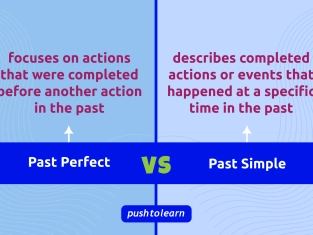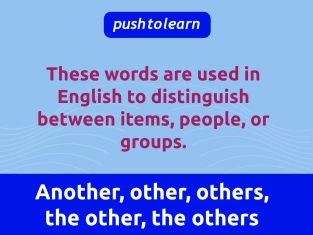by PushtoLearn
Future Continuous vs Future Perfect
Table of Contents
Future Perfect – Exercises
These exercises focus on Future Perfect
What Are Future Continuous and Future Perfect Tenses?
Future Continuous
The Future Continuous tense talks about an action that will be in progress at a specific time in the future.
Structure:
Subject + will + be + verb(-ing)
Examples:
-
At 8 p.m. tomorrow, I will be watching a movie.
-
This time next week, they will be traveling to New York.
Future Perfect
The Future Perfect tense talks about an action that will be completed before a specific time in the future.
Structure:
Subject + will + have + past participle
Examples:
-
By 10 a.m., she will have finished her homework.
-
They will have built the new bridge by next year.

Rules and Key Differences
|
Feature |
Future Continuous |
Future Perfect |
|
Focus |
Action in progress at a specific time in the future. |
Completed action before a specific time in the future. |
|
Time Expression |
"at this time tomorrow," "at 9 p.m.," etc. |
"by 10 a.m.," "before Friday," "by next month" |
|
Form |
Will + be + verb(-ing) |
Will + have + past participle |
|
Example Sentence |
I will be working at 7 p.m. tonight. |
I will have finished my work by 7 p.m. tonight. |
Common Errors
Future Continuous Errors
-
Wrong verb form:
-
Incorrect: She will be works tomorrow.
-
Correct: She will be working tomorrow.
-
Confusion with Present Continuous:
-
Incorrect: I am going to the park at 5 p.m. (if it’s about a planned future action).
-
Correct: I will be going to the park at 5 p.m. (future action in progress).
Future Perfect Errors
-
Using the wrong auxiliary verb:
-
Incorrect: They will had finished by then.
-
Correct: They will have finished by then.
-
Forgetting the past participle form:
-
Incorrect: We will have complete the project.
-
Correct: We will have completed the project.
When to Use These Tenses in Everyday Life
Future Continuous
-
Ongoing actions in the future:
-
At 6 p.m., I will be driving home from work.
-
Polite questions about future plans:
-
Will you be joining us for dinner later?
Future Perfect
-
Talking about deadlines or goals:
-
By next week, I will have learned 50 new words.
-
Speculating about completed actions in the future:
-
The guests will have left by the time you arrive.
FAQs About Future Continuous and Future Perfect
What is the main difference between Future Continuous and Future Perfect?
The Future Continuous describes actions in progress at a specific time in the future, while the Future Perfect describes actions that will be completed before a specific future time.
Can I use Future Continuous with "by"?
No, the Future Continuous is used with phrases like "at this time" or "at 5 p.m." The Future Perfect is used with "by" or "before."
Are there alternative forms for these tenses?
Yes, you can use "going to" instead of "will" for informal situations. For example:
-
Future Continuous: At 7 p.m., I am going to be studying.
-
Future Perfect: By tomorrow, I am going to have completed my project.
How do I make these tenses negative?
-
Future Continuous: Add "not" after "will."
-
Example: She will not be attending the meeting.
-
Future Perfect: Add "not" after "will."
-
Example: They will not have arrived by 8 p.m.
What are the common time markers for these tenses?
-
Future Continuous: "At this time tomorrow," "At 5 p.m.," "While..."
-
Future Perfect: "By 10 a.m.," "Before the weekend," "By the time..."

